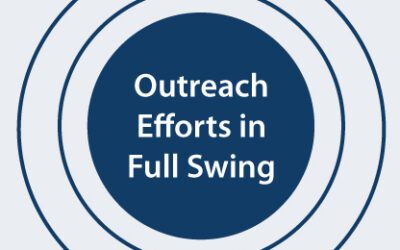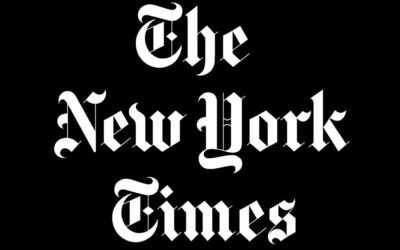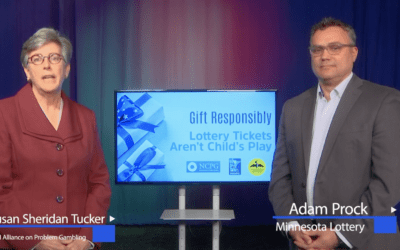advocacy
The Minnesota Alliance on Problem Gambling (MNAPG), Minnesota’s affiliate to the National Council on Problem Gambling (NCPG), is a non-profit, gambling-neutral organization dedicated to improving the lives of Minnesotans affected by problem gambling. MNAPG is a coalition of individuals and organizations sharing the belief that problem gambling is a serious public health problem that is both treatable and preventable. MNAPG and NCPG are neutral on the legalization of gambling, but support efforts to minimize the risks associated with gambling and its expansion.
Advocacy Efforts:
- Raising public awareness about problem gambling and the stigma that’s often associated with it. Working to change minds and hearts to accept problem gambling as a significant public health issue.
- Funding for treatment programs as well as the establishment of best practices in counseling and training.
- Commission research to produce data that will provide information about the impacts of gambling.
- MNAPG supports legislative initiatives that help to protect the consumer, including strengthening responsible gambling and self-exclusion programs.
- MNAPG partners with other affiliates and NCPG to support federal legislative efforts to recognize gambling disorder as a legitimate addiction and to achieve funding parity with other, more well-known addictions. Currently, gambling disorder does not receive federal funds for research or treatment, yet the federal government receives over $7 billion a year from gambling revenues.
The collective impact of our efforts helps individuals, their families and their communities deal with the devastating effects of problem gambling.
advocacy
Outreach Efforts in Full Swing
We’re working hard to let various audiences know about the risks of gambling addiction. READ MORE
New York Times Articles
Read these recent articles on problem gambling from the New York Times: Cigars, Booze, Money How a Lobbying Blitz Made...
Gift Responsibly PSA
Susan Sheridan Tucker, Executive Director of Minnesota Alliance on Problem Gambling, and Adam Prock, Executive Director of The Minnesota Lottery, team up to talk about the harms of gifting lottery tickets to minors. READ MORE
- EXPANSION OF SPORTS BETTING
- MINNESOTA PROBLEM GAMBLING LEGISLATION
- NCPG AND FEDERAL IntiativeS
- CONCERNS ABOUT POST-2018 SPORTS GAMBLING
- MINNESOTA SPORTS BETTING LEGISLATION
- RESPONSIBLE GAMBLING – Healthy Play
In May 2018, the U.S. Supreme Court overturned the long-term ban on sports betting that only allowed betting in Nevada. This provided an opportunity for all 50 states to enact legislation to permit sports betting.
The nature of sports gambling is rapidly changing. Newer modes of sports gambling (and gambling in general) and new types of wagers have recently come into existence. Much of the available sports gambling problem gambling research was conducted before the proliferation of sports gambling in electronic forms.
Popularity and Growth of Sports Gambling
Sports gambling is popular — and growing. Nearly half of American consumers have placed a bet on a sporting event. In 2015, sports wagering represented 45% of gambling done online. Online sports betting has increased considerably over the past few years.
Fantasy sports gambling continues to experience explosive growth. Studies suggest the number of people participating in fantasy sports grew from approximately 14 million people in 2004 to 57 million people in 2018. This is particularly concerning from a problem gambling perspective given that higher fantasy game participation has been associated with significant increases in problem gambling severity.
This decision by the Supreme Court of the United States (SCOTUS) has spurred one of the largest expansions of gambling in recent history. As of Februrary 2021, over 25 states plus the District of Columbia have passed legislation and many more, including Minnesota, are considering bills. Early signs show a pent-up demand for sports betting with an additional desire to make it available online.
MN Problem Gambling Statutes
TESTIMONY
MNAPG keeps track of any legislative initiatives that may directly impact the expansion of gambling or gambling addiction services. Since 2018, when the sports betting ban was overturned by the Supreme Court, it’s been necessary for MNAPG and NCPG to weigh in on proposed legislation.
Testimony from MN Sports Wagering HF 788
- National Council on Problem Gambling, Keith Whyte Executive Director, March 9, 2022
- MNAPG, Susan Sheridan Tucker, March 31, 2022
Testimony from the Minnesota Sports Waging SF 1894, Senate State Government Finance and Policy and Elections Committee, March 3, 2020:
- Brianne Doura-Schawohl, Legislative Director, National Council on Problem Gambling
- Susan Sheridan Tucker, Executive Director, Minnesota Alliance on Problem Gambling
MNAPG communications
MNAPG maintains communications with the MN Legislature advocating for improved guard rails in any gambling expansion and seeking improvements in the delivery of gambling addiction services.
NCPG INTIATIVES
The National Council on Problem Gambling continually monitors activities at the federal policy level and the national gaming industry. Below are NCPG policy statements which MNAPG adheres to and supports.
- NCPG Statement on Protecting Children from Abusive Games Act, May 2019
- NCPG Statement on Loot Boxes to FCC, August 2019
- NCPG Testimony to FCC on Loot Boxes, August 2019
- Responsible Gaming Principles for Sports Gambling Legislation, August 2018
- Fantasy Sports Consumer Protection Guidelines 2015
- NCPG Internet Responsible Gambling Standards 2012
FEDERAL LEGISLATIVE INITIATIVES
Federal legislation to recognize and properly fund gambling addiction services have been elusive for decades. Below are the most recent attempts to bring shed further light on the impacts of gambling addiction.
There are several aspects of online sports betting that fuel public health concerns about the amount of problem gambling that may arise from it:
- Access. The great availability of online gambling, including the ability to bet from a laptop computer or a mobile device, allows for patterns of use that are different than those associated with brick-and-mortar venues. Those who gamble to alleviate psychological distress may find online gambling to be more convenient, provide more privacy, be less socially demanding, allow greater use of substance use while gambling and result in betting late into the night. With real-time betting, there is literally no friction between the player and their next wager. Early indications are that those who bet through mobile devices have higher rates of problems than those who prefer land-based betting.
- Live In-Play Betting and Micro Betting. In addition to traditional sports betting that revolves around the winner of the game, today’s sports gamblers can bet — in game — on discrete events such as the winner of the next point in tennis. This greatly reduces the delay between bet and reward, a cycle of betting associated with impulsive behaviors that can be risky for some gamblers.
College-Aged and Youth Are at Higher Risk
- There is considerable evidence that gambling begins at early ages, as early as 10 years old. Studies have shown the earlier one starts gambling, the greater the likelihood they will have issues with problem gambling. More than 13% of adolescents had wagered money on sports teams according to a study in 2017. Gambling – of any kind – is widespread in college, with 75-80% of student having gambled within the last year. Given their age, access to gambling, propensity for risk taking and the social acceptability and glamorization of gambling, college students may be particularly susceptible to developing gambling problems.
- Students most often bet on professional football and college basketball. Male college students are far more likely than females to participate in sports gambling and are also more likely to experience gambling-related problems.
Professional Athletes Frequently Gamble on Sports
Gambling on sports is widespread among professional athletes. A study in Europe showed that 56.6% of professional athletes gambled in the previous year, with 8.2% exhibiting problem gambling. Other studies reflect that the rate of problem gambling is significantly higher in professional athletes than among the general population.
Marketing Inhibits Ability to Stop Gambling
The betting environment is being shaped by promotions made by online gambling providers. While it’s too early to say what effect this messaging has on problem gambling sports bettors, one study found that problem bettors found it more difficult to discontinue betting in light of promotions that emphasize the ease of placing a bet and offers of risk-free bonuses.
Minnesota considered legislation to permit sports betting (February 2022) which did not move forward. We are anticipating new bills to be introduced during the 2023 Legislative Session. As a result of this rapid expansion, the National Council on Problem Gambling and the Minnesota Alliance on Problem Gambling urge including the following four principles in the bill:
1. Ensure that any expansion legislation includes dedicated funds to prevent and treat gambling addiction.
a. Specifically, we recommend language which provides 1% of the tax revenue from sports betting be allocated to the state’s compulsive gambling program established under statute §245.98, with ½ of one percent appropriated to DHS and the other ½ of one percent to the state affiliate of the National Council on Problem Gambling. This will enable us to expand our outreach, training and research, and make more dollars available for treatment for the anticipated increased number of Minnesotans with problem gambling.
2. Require operators to implement responsible gaming programs that include comprehensive employee training, provide access to self-exclusion programs, establish the ability to set limits on time and money spent on betting and include specific requirements for help/prevention messages in external marketing.
a. Other states have legislated or negotiated agreements whereby responsible gaming programs are integral to the operators’ business plans, including programs for employees who encounter problem gamblers and employees who themselves have a gambling disorder.
3. Identify an agency or entity with the tools and expertise to enforce responsible gaming requirements and create a comprehensive self-exclusion program.
4. Conduct research on the prevalence of gambling addiction prior to expansion and at regular periods thereafter in order to monitor impacts of gambling and have data that will support evidence-based mitigation efforts.
In addition NCPG has prepared Internet Responsible Gambling Standards and Fantasy Sports Consumer Protection Guidelines. MNAPG and NCPG testified in 2020 and continue to communicate with legislators. To review our positions and recommendations, please explore our advocacy resource page.
Responsible gambling emphasizes gambling for fun and entertainment’s sake. Gambling can become a problem when seen as a source of income or when gamblers spend more money than they can afford to lose. Responsible gambling programs emphasize prevention. They are intended for all players because the goal is to stop problem gambling behaviors from developing in the first place.
Ultimately, MNAPG advocates that all gambling stakeholders understand and respond to the risks associated with problem gambling. All who engage in playing should understand the rules of each game, the odds of winning, the importance of setting time and money limits, and knowing when to leave if play takes a downward turn. It’s important for gaming operators to understand that a small percentage of their customers will have problem gambling issues while some may even develop a serious gambling disorder. There are tools that can bring players and operators together to cool things down when play has become problematic. This may mean a player should voluntarily self-exclude for a time. Casinos and cardrooms should make that process easy and enforceable. Ideally, if someone chooses to self-exclude at one casino it should apply to all in the state.
MNAPG advocates that every gambling venue provide a high-quality responsible gambling program incorporating the best practices. This means staff is trained to know how the signs of a distressed player and to confidently direct customers to helpful resources and referral services.
For this to succeed, it requires a commitment and an embedded part of an organization’s business plan to train their staff and include responsible gambling information in prominent spaces. This would increase awareness to staff and their customers about safer practices, including how to play the games offered, ways to gamble more safely, the risks associated with gambling and the true chances of winning.
Components of Responsible Gambling Programs
- Signage, special kiosks, dedicated staff, special event promotions and distribution of resource materials throughout the facility.
- Increased staff training to further support efforts to assist those with problem behaviors.
- Offering voluntary self-exclusion. (Currently, Minnesota does not have a statewide program, meaning one has to self-exclude from each facility.)
MNAPG and the NCPG will be closely following advances in responsible gambling/healthy play and will work with the operators and regulators to ensure best practices are applied. We will also support efforts at the legislative level to ensure that with any gambling expansion legislation, proper consumer protections are in place and funds are set aside to help fund treatment, prevention and research.



